
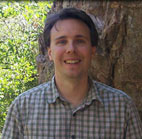 Eric Dearing is an assistant professor of psychology at the University of Wyoming. He received his Ph.D. from the University of New Hampshire and completed a post-doctorate fellowship in developmental psychology at Harvard Medical School. Eric has a M.A. in Psychology from the University of New Hampshire and a B.A. from the University of Colorado at Colorado Springs. Eric’s research interests are centered in children’s development in impoverished contexts, including the role of family involvement during kindergarten, parenting and parent-child relationships. His recent publications include Family educational involvement during kindergarten promotes literacy selfefficacy and achievement for children living in less educated, low-income families, published in the Journal of School Psychology; and The developmental implications of restrictive and supportive parenting across neighborhoods and ethnicities: Exceptions are the rule, found in the Journal of Applied Developmental Psychology. Dearing recently received the 2003 - 2005 National Academy of Education/Spencer Foundation Postdoctoral Fellowship award. Eric Dearing is an assistant professor of psychology at the University of Wyoming. He received his Ph.D. from the University of New Hampshire and completed a post-doctorate fellowship in developmental psychology at Harvard Medical School. Eric has a M.A. in Psychology from the University of New Hampshire and a B.A. from the University of Colorado at Colorado Springs. Eric’s research interests are centered in children’s development in impoverished contexts, including the role of family involvement during kindergarten, parenting and parent-child relationships. His recent publications include Family educational involvement during kindergarten promotes literacy selfefficacy and achievement for children living in less educated, low-income families, published in the Journal of School Psychology; and The developmental implications of restrictive and supportive parenting across neighborhoods and ethnicities: Exceptions are the rule, found in the Journal of Applied Developmental Psychology. Dearing recently received the 2003 - 2005 National Academy of Education/Spencer Foundation Postdoctoral Fellowship award.

 John B. Diamond is an assistant professor of education at the Harvard Graduate School of Education. Diamond is a sociologist of education who focuses on how race, ethnicity and social class intersect with school practices and policies to determine the educational opportunities and outcomes of children. His recent research includes a four-year study of urban school leadership, an examination of the implications of social class for African-American parents' educational participation, a study of race, social class and student achievement in suburban schools, and a study of the development and diffusion of teachers' expectations of students. For the last study, Diamond was the recipient of a National Academy of Education/Spencer Postdoctoral Fellowship. In addition to his NAE/Spencer Fellowship, he also recently earned the Faculty Fellowship Award from the Center for 21st Century Studies and the University of Wisconsin System Institute on Race and Ethnicity. His fields of interest include the sociology of education; stratification; race and class stratification; parent involvement; and leadership and organizational change. He served as research director of the Distributed Leadership Project (http://www.letus.org/dls), a program of research investigating the practice of school leadership in urban elementary schools, from 1999–2002. Recent publications can be found in Sociology of Education, Education Researcher, The Journal of Curriculum Studies, Educational Policy, Anthropology and Education Quarterly ,and The Berkeley Journal of Sociology. John B. Diamond is an assistant professor of education at the Harvard Graduate School of Education. Diamond is a sociologist of education who focuses on how race, ethnicity and social class intersect with school practices and policies to determine the educational opportunities and outcomes of children. His recent research includes a four-year study of urban school leadership, an examination of the implications of social class for African-American parents' educational participation, a study of race, social class and student achievement in suburban schools, and a study of the development and diffusion of teachers' expectations of students. For the last study, Diamond was the recipient of a National Academy of Education/Spencer Postdoctoral Fellowship. In addition to his NAE/Spencer Fellowship, he also recently earned the Faculty Fellowship Award from the Center for 21st Century Studies and the University of Wisconsin System Institute on Race and Ethnicity. His fields of interest include the sociology of education; stratification; race and class stratification; parent involvement; and leadership and organizational change. He served as research director of the Distributed Leadership Project (http://www.letus.org/dls), a program of research investigating the practice of school leadership in urban elementary schools, from 1999–2002. Recent publications can be found in Sociology of Education, Education Researcher, The Journal of Curriculum Studies, Educational Policy, Anthropology and Education Quarterly ,and The Berkeley Journal of Sociology.
Diamond has also been the research director of the Minority Student Achievement Network (MSAN). The MSAN is a consortium of 15 integrated suburban school districts that addresses the achievement gap between African-American and Latino students and white students.
Previously, Diamond was an assistant professor at the University of Wisconsin at Milwaukee in the department of educational policy and community studies and a research assistant professor at the School of Education and Social Policy at Northwestern University. He also served as a program associate in planning and evaluation at the MacArthur Foundation and as a graduate fellow at the National Science Foundation/Institute for Policy Research at Northwestern.
His most recent publications include "African-American Parents' Orientations towards Schools" (with K. Williams Gomez; in press) in Education and Urban Society; "High-Stakes Accountability in Urban Elemenatary Schools" (with J. Spillane; in press) in Teachers College Record; "Teachers' Expectations and Sense of Responsibility for Student Learning" (with A. Randolph and J. Spillane; in press) in Anthropology and Education Quarterly; and "Towards a Theory of School Leadership" (with J. Spillane and R. Halverson; in press) in Journal of Curriculum Studies.
Diamond received his Ph.D. in sociology from Northwestern University and his B.A. in political science and sociology from the University of Michigan.

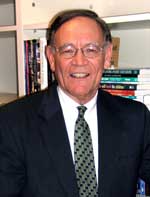 Arnold F. Fege is a leading national proponent of democratic decision-making to the survival of the common school, and has presented and written widely on issues of public engagement, parental empowerment, and equal educational opportunity for all children in public education, with particular focus on low-income children and communities. Arnold F. Fege is a leading national proponent of democratic decision-making to the survival of the common school, and has presented and written widely on issues of public engagement, parental empowerment, and equal educational opportunity for all children in public education, with particular focus on low-income children and communities.
Fege is the Director of Public Engagement and Advocacy for the Public Education Network, representing 87 community based local education funds in urban school districts that focus on improved educational opportunities for poor and disadvantaged children. At PEN, he directs the PEN/Education Week annual national poll on the public's responsibility for public schools, coordinates the creation of the newly developed PEN index to measure community civic behaviors related to quality public schools, is co-author of the PEN Guide on NCLB Parental and Community Involvement, represents PEN on the Hill related to major elementary and secondary legislation, and interacts with key education and parent organizations at the national level. Fege is also the founder and president of Public Advocacy for Kids, a non-profit consulting firm focusing on child advocacy and legislative issues at the national level coupled with grassroots constituency building.
Fege has over 30 years of public education and child advocacy experience, including such areas as nonprofit management, policymaking, governmental relations, media relations, strategic planning, communications, news writing, and organizational development. He has extensive local school district experience as a public school teacher, principal, assistant superintendent, and desegregation director. As a staff person for Senator Robert F. Kennedy, he helped draft provisions in the original ESEA legislation and was present when President Lyndon Johnson signed the measure into law in March 1965.
He was the Director of the National PTA's Office of Governmental Relations in Washington, D.C. for over 17 years where he as responsible for playing a major role in national policy related to public education, children's media and health care. He was also led the National Coalition for Public Education comprised of 60 member associations organized to defeat federal tuition tax credit and private school voucher proposals. He also served as a journalist for the Chicago Sun-Times, Cleveland Plain Dealer, and the Philadelphia Inquirer, covering urban problems and education, and was a Vietnam War correspondent for two years filing stories for the Associated Press.
Fege was the recipient of the 1969 Robert F. Kennedy Memorial Peace Award, the 1970 United Nations Journalism Award for Excellence in Analytical International Newswriting, a 1983 Roosevelt Center Congressional Child Advocacy Award, the 1991 Jefferson Foundation Religious Liberty Honor, and the 1998 National PTA President's Recognition for Outstanding Child Advocacy, and the 2000 Nelson Mandela Award for International Education Leadership and Social Justice. He has degrees from Hope College, Oberlin College and Teachers College, Columbia University.

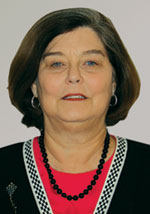 Catherine Jordan is a Program Manager with the National Partnership for Quality Afterschool Learning at SEDL and with SEDL's Regional Educational Laboratory (REL) Task 2: National Leadership for Family and Community Involvement. She currently leads the National Center for Family and Community Connections with Schools, which links people with research-based information and resources they can use to effectively connect schools, families and communities. Catherine Jordan is a Program Manager with the National Partnership for Quality Afterschool Learning at SEDL and with SEDL's Regional Educational Laboratory (REL) Task 2: National Leadership for Family and Community Involvement. She currently leads the National Center for Family and Community Connections with Schools, which links people with research-based information and resources they can use to effectively connect schools, families and communities.
Between 1997 and 2000, Ms. Jordan lead SEDL's field-based research and development of home, school, and community partnerships, which culminated in the publication of Creating Collaborative Action Teams: Working Together for Student Success. She is a Regional Associate of the National Center for Community Education (NCCE) in Flint, Michigan, and serves on its National Training Task Force for the 21st Century Community Learning Centers.
Prior to joining SEDL, Ms. Jordan served as Executive Director for the McLennan County Youth Collaboration - Communities In Schools, Inc., in Waco, Texas, where she developed the nationally recognized "Lighted Schools" project as a part of the Pew Charitable Trust's Partnership for Civic Change.
Ms. Jordan holds a BA in journalism and history from Baylor University and an MAT in public service administration from Tarleton State University.

 Karen L. Mapp, Ed.D, is the President of the Institute for Responsive Education. Dr. Mapp joined IRE in 1997 as Project Director for the Boston Community Partners for Students' Success initiative, which focused on the development of activities and programs to familiarize parents with the recently established Boston Citywide Learning Standards. She was appointed vice-president of IRE in May of 1998 and president in September of 1998. Dr. Mapp was recently appointed as the Interim Deputy Superintendent for Family and Community Engagement for the Boston Public Schools. During her tenure, Dr. Mapp will retain the title and duties of IRE President. Ms. Mapp holds a Doctorate and Master's of Education from Harvard University in Administration, Planning, and Social Policy, a Master's in Counselor Education from Southern Connecticut State University, and a Bachelor's degree in Psychology from Trinity College in Hartford, CT. In 1997, Dr. Mapp was awarded a Spencer Dissertation Fellowship for her research on how and why families are involved in their children's educational development. She is the author of "Making the Connection between Families and Schools," published by the Harvard Education Letter (1997). She co-authored with Anne Henderson A New Wave Of Evidence: The Impact of School, Family and Community Connections on Student Achievement, published by the Southwest Educational Development Laboratory. Most recently she has published "Having Their Say: Parents Describe How and Why They Are Engaged in Their Children's Learning" in The School Community Journal. Karen L. Mapp, Ed.D, is the President of the Institute for Responsive Education. Dr. Mapp joined IRE in 1997 as Project Director for the Boston Community Partners for Students' Success initiative, which focused on the development of activities and programs to familiarize parents with the recently established Boston Citywide Learning Standards. She was appointed vice-president of IRE in May of 1998 and president in September of 1998. Dr. Mapp was recently appointed as the Interim Deputy Superintendent for Family and Community Engagement for the Boston Public Schools. During her tenure, Dr. Mapp will retain the title and duties of IRE President. Ms. Mapp holds a Doctorate and Master's of Education from Harvard University in Administration, Planning, and Social Policy, a Master's in Counselor Education from Southern Connecticut State University, and a Bachelor's degree in Psychology from Trinity College in Hartford, CT. In 1997, Dr. Mapp was awarded a Spencer Dissertation Fellowship for her research on how and why families are involved in their children's educational development. She is the author of "Making the Connection between Families and Schools," published by the Harvard Education Letter (1997). She co-authored with Anne Henderson A New Wave Of Evidence: The Impact of School, Family and Community Connections on Student Achievement, published by the Southwest Educational Development Laboratory. Most recently she has published "Having Their Say: Parents Describe How and Why They Are Engaged in Their Children's Learning" in The School Community Journal.
Dr. Mapp's prior work experience includes serving as Assistant Director of the Massachusetts Prevention Center in Framingham, MA, and Associate Director of Admissions at Trinity College in Hartford, CT. She is a member of the Board of Directors of Parents for Public Schools, Inc. She also serves on SEDL’s National Center for Family and Community Connections with Schools Steering Committee.

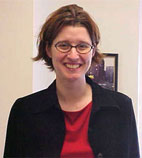 Christine McWayne, Ph.D. works as an Assistant Professor at NYU’s School Psychology Program with the faculty of the Department of Applied Psychology at the Steinhardt School of Education. She received her B.S. in Psychology from Abilene Christian University, her M.S.Ed. in Psychological Services and her Ph.D. in the APA-approved School, Community, and Clinical-Child Psychology program from the University of Pennsylvania. Christine McWayne, Ph.D. works as an Assistant Professor at NYU’s School Psychology Program with the faculty of the Department of Applied Psychology at the Steinhardt School of Education. She received her B.S. in Psychology from Abilene Christian University, her M.S.Ed. in Psychological Services and her Ph.D. in the APA-approved School, Community, and Clinical-Child Psychology program from the University of Pennsylvania.
During her graduate training at the University of Pennsylvania, she served as a principal investigator of a Head Start Research Scholars Grant funded by the U.S. Department of Health and Human Services. Through this work, she examined parenting practices in Head Start families as they related to children's school readiness.
At NYU, Dr. McWayne is involved in partnership-and community-based research within the Head Start community in New York City. Generally, her research interests include: family involvement in children's education in low-income communities, helping to establish a whole-child understanding of low-income, preschool children's school readiness competencies, and validating assessment instruments and intervention for low-income, preschool children and their families. Her recent research has focused on the examination of multiple dimensions of school readiness within the context of classroom quality and the social and structural dimensions of urban neighborhoods.
Dr. McWayne’s awards include Early Career Scholar Award from the Society for the Study of School Psychology; Community Service Award from the School District of Philadelphia PreKindergarten Head Start Program; and William E. Arnold Outstanding Accomplishments by a Doctoral Student from Phi Delta Kappa.

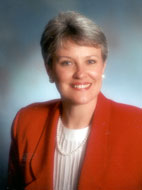 Kris Olson is the Executive Director, Parents for Public Schools of Waco, Texas. As a long-time resident of Waco, Kris attended and graduated from Waco Public Schools and earned a B. S. in Education, Communication Disorders from Baylor University. Her work as an advocate for parents and children in public schools spans organizations such as Parents for Public Schools, the Advocacy Center for Crime Victims and Children, school trustee for the Waco Independent School District, Communities In Schools and Texans Care for Children. Kris also sits on many steering committees, such as the National Forum to Accelerate Middle Grades Reform and the Citizens for Better Schools Bond Election, as well as SEDL’s National Center for Family and Community Connections with Schools. Kris also sat on the board of directors for the Greater Waco Chamber of Commerce where she was chair of Education/Workforce Development. Kris has won numerous distinctions and awards, including Pathfinder Award for Public Service, Waco Family Y, 1999; Excellence in Voluntarism Award, Junior League of Waco, 1998; Hometown Hero, Cablevision, Fox Sports Southwest, and Baylor University Athletics, 1998; Family of the Year, Waco Conference of Christians and Jews, 1996; and Parent of the Year for Region XII, Texas Association for the Gifted and Talented, 1996. She has presented at the Harvard Graduate School of Education / National Center for Family and Community Connections with Schools symposium, 2004; Heart of Texas Nonprofit Institute, 2002, 2004; Alabama A+ Education Foundation (keynote speaker) 2000; National Staff Development Council national conference, 1999; and Baylor University Continuing Education class, 1999. Kris Olson is the Executive Director, Parents for Public Schools of Waco, Texas. As a long-time resident of Waco, Kris attended and graduated from Waco Public Schools and earned a B. S. in Education, Communication Disorders from Baylor University. Her work as an advocate for parents and children in public schools spans organizations such as Parents for Public Schools, the Advocacy Center for Crime Victims and Children, school trustee for the Waco Independent School District, Communities In Schools and Texans Care for Children. Kris also sits on many steering committees, such as the National Forum to Accelerate Middle Grades Reform and the Citizens for Better Schools Bond Election, as well as SEDL’s National Center for Family and Community Connections with Schools. Kris also sat on the board of directors for the Greater Waco Chamber of Commerce where she was chair of Education/Workforce Development. Kris has won numerous distinctions and awards, including Pathfinder Award for Public Service, Waco Family Y, 1999; Excellence in Voluntarism Award, Junior League of Waco, 1998; Hometown Hero, Cablevision, Fox Sports Southwest, and Baylor University Athletics, 1998; Family of the Year, Waco Conference of Christians and Jews, 1996; and Parent of the Year for Region XII, Texas Association for the Gifted and Talented, 1996. She has presented at the Harvard Graduate School of Education / National Center for Family and Community Connections with Schools symposium, 2004; Heart of Texas Nonprofit Institute, 2002, 2004; Alabama A+ Education Foundation (keynote speaker) 2000; National Staff Development Council national conference, 1999; and Baylor University Continuing Education class, 1999.
Kris is married to Charles D. Olson, an attorney, and has two daughters, Elisabeth Lial and Anne Kristine, both of whom attend college.

 Dr. Heather B. Weiss is the Founder and Director of Harvard Family Research Project (HFRP) and is a Senior Research Associate and Lecturer at the Harvard Graduate School of Education. From its beginning in 1983, the HFRP's mission has been to help create more effective practices, interventions, and policies to support children's successful development from birth to adulthood. To achieve this mission, Dr. Weiss and her colleagues conduct, synthesize, and disseminate research and evaluation information and develop tools that encourage professional and organizational learning, support evaluation, continuous improvement and accountability, and that spark innovation. A key feature of HFRP's work is our "complementary learning" approach that acknowledges the many contexts in which young people grow and develop, including, but not limited to, school day institutions. Specifically, Dr. Weiss and her colleagues promote programs and policies that support children's learning and development in non-school contexts, including out-of-school time programs and activities, and families and communities. Dr. Heather B. Weiss is the Founder and Director of Harvard Family Research Project (HFRP) and is a Senior Research Associate and Lecturer at the Harvard Graduate School of Education. From its beginning in 1983, the HFRP's mission has been to help create more effective practices, interventions, and policies to support children's successful development from birth to adulthood. To achieve this mission, Dr. Weiss and her colleagues conduct, synthesize, and disseminate research and evaluation information and develop tools that encourage professional and organizational learning, support evaluation, continuous improvement and accountability, and that spark innovation. A key feature of HFRP's work is our "complementary learning" approach that acknowledges the many contexts in which young people grow and develop, including, but not limited to, school day institutions. Specifically, Dr. Weiss and her colleagues promote programs and policies that support children's learning and development in non-school contexts, including out-of-school time programs and activities, and families and communities.
Under Weiss's leadership, HFRP has a 10-year track record for publishing The Evaluation Exchange, a quarterly national review of the latest evaluation thinking and practice in key areas of child and family policy. HFRP has also developed the only national database of evaluations of out-of-school time and youth programs and uses it to inform policy and practice and to shape the design of strategic evaluations to build the usable knowledge base for this growing field.
Weiss and her colleagues created the national Family Involvement Network of Educators (FINE), a growing network of over 4,000 people committed to family and community involvement in children's learning. HFRP supports this web-based network by providing the latest research, documenting innovative practices and programs, and highlighting new professional development tools.
HFRP also developed the Home Visit Forum, a group of national home visit programs who work together to get and use evaluation to improve their services. Information about all of these groups and publications are available on the HFRP's website (www.hfrp.org).
Dr. Weiss writes, speaks, and advises on programs and polices for children and families and serves on the advisory boards of many public and private organizations. She is a consultant and advisor to numerous foundations on strategic grantmaking and evaluation. Her latest publications include several articles reporting on her longitudinal study of ways family involvement in children's learning promotes development and school success, a book about how to involve families and communities in children's learning and development, papers on how to measure and to encourage youth participation in after school and youth programs, and a paper on the use of data and evaluation in democracies. She also teaches two modules at the Harvard Graduate School of Education, one on family-school partnerships, and one on after school research, policy, and practice.
Dr. Weiss received her doctorate in Education and Social Policy from the Harvard Graduate School of Education and she was a postdoctoral research fellow at the Yale Bush Center in Child Development and Social Policy.
|


